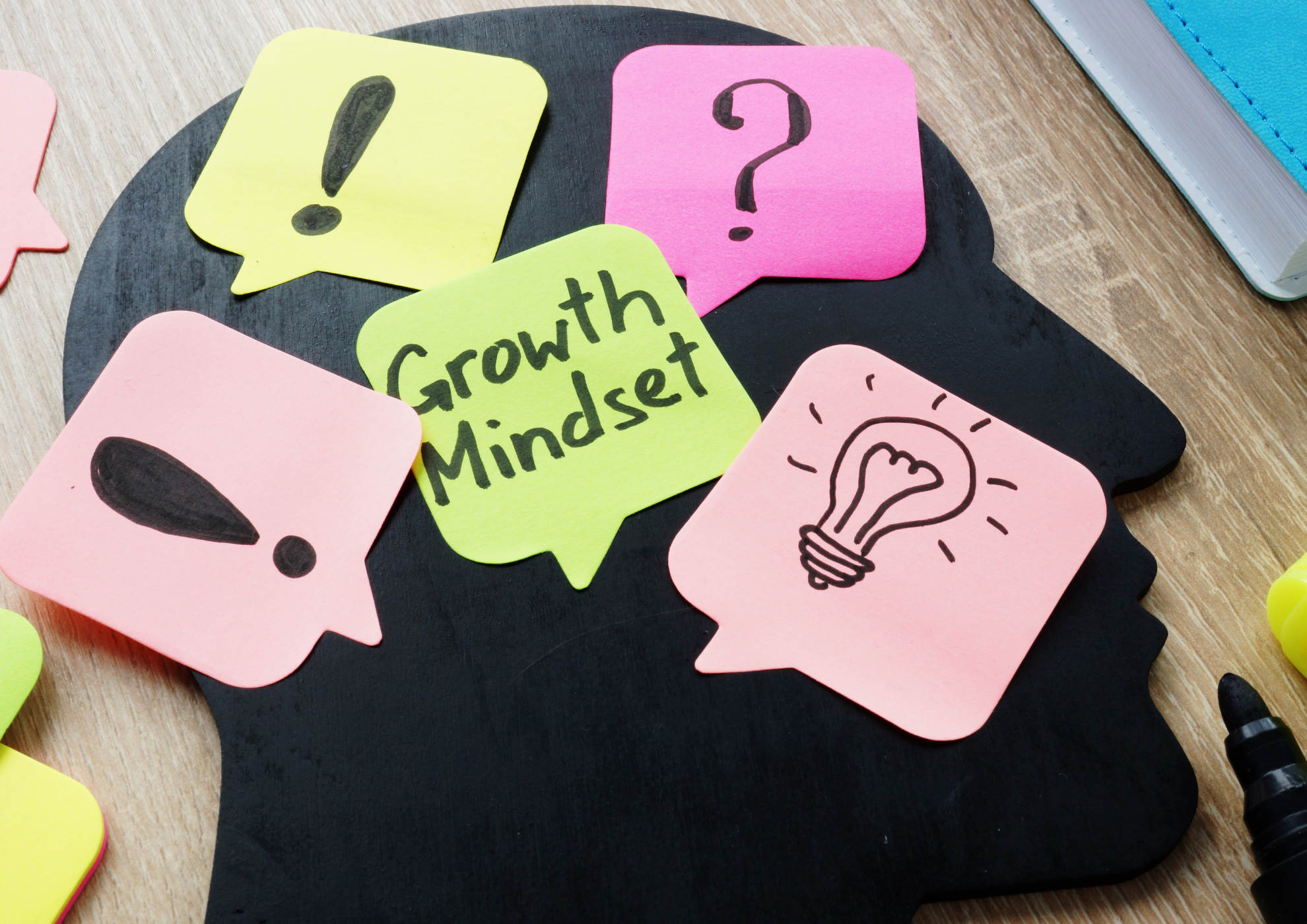You want the best for your child. You want them to have every opportunity available and to succeed at whatever they set their mind to. And while it’s important to encourage your child, telling them they can do anything they set their mind to may not be the most helpful message in the long run.
Is telling your child they can do anything setting them up for failure? Learn the truth behind this popular parenting advice.
The truth is, we all have limitations and strengths. Embracing these individual differences and setting realistic goals can lead to greater success and happiness in life.
In this article, we’ll explore why it’s important to avoid the myth of unlimited potential and instead focus on encouraging exploration, growth, and development in our children.
Key Takeaway
- Realistic goal-setting is important for success and building resilience and self-confidence
- Acknowledging external factors like socioeconomic status and systemic inequalities is important in managing expectations
- Failure is a natural part of any journey towards success and should be embraced as an opportunity for growth
- Embracing uniqueness rather than trying to conform to societal norms or unrealistic expectations can lead to a more fulfilling life

The Myth of Unlimited Potential
Every child has unique strengths and weaknesses, which means that some goals may be more achievable than others. It’s crucial to understand that not all limitations are negative or barriers to success. In fact, recognizing limitations can help children focus on their strengths and set achievable goals.
Don’t believe the myth that your kid can achieve anything they want just by setting their mind to it. While it’s important to encourage children and help them develop a growth mindset, it’s equally important to explore limitations and manage expectations appropriately.
It’s also essential to consider external factors such as socioeconomic status, access to resources, and systemic inequalities that may impact a child’s opportunities for success. Managing expectations is key in helping children navigate challenges and setbacks. Unrealistic expectations can lead to disappointment and frustration, while realistic expectations coupled with appropriate support can foster resilience and perseverance.
Encourage your child to pursue their passions while also acknowledging the hard work that goes into achieving success. Embracing individuality and diversity is an essential part of supporting your child’s growth and development. Recognizing each child’s unique abilities, interests, and perspectives can help them thrive both academically and personally.
By understanding their limitations while embracing their diversity, you’ll be able to provide the necessary support for them to reach their full potential without putting undue pressure on unrealistic goals or achievements.
Embracing Individuality and Diversity
Embracing uniqueness also means acknowledging that not everyone will excel at the same things. We all have different passions, interests, and talents that set us apart from one another. Rather than pressuring ourselves or others to be good at everything, we should focus on developing our unique skills and pursuing what brings us joy. This allows for a more fulfilling life where we can thrive in our own areas of expertise.

You should celebrate and appreciate the unique qualities and differences in yourself and others, as these are what make us all truly special. Instead of trying to fit into a mold or conform to societal expectations, we should embrace our individuality and diversity. It’s important to recognize that everyone has their own strengths, weaknesses, and quirks that make them who they are. By celebrating differences, we can create a more inclusive and accepting society.
Celebrating differences also means being open-minded to those around us who may come from different backgrounds or have differing beliefs. By embracing diversity, we can learn from each other’s experiences and grow as individuals. Moreover, by recognizing our similarities as well as our differences, we can build connections with people who may appear very different from ourselves.
It’s important to celebrate individuality and diversity because it allows for a more accepting society where people feel valued for who they truly are. By embracing uniqueness rather than trying to conform to societal norms or unrealistic expectations, we can pursue what truly makes us happy while fostering connections with those around us regardless of their background or beliefs. Understanding this is crucial when setting realistic goals – which will be discussed further in the subsequent section about the importance of realistic goal-setting.
The Importance of Realistic Goal-Setting

Realistic goal-setting can be the key to achieving success beyond your wildest dreams. It’s important to balance ambition and feasibility when setting goals for yourself or your child. While it’s great to dream big, it’s also crucial to set realistic expectations based on your resources, abilities, and circumstances.
One way to achieve this is by setting benchmarks for progress and reassessment. Break down larger goals into smaller, achievable steps that you can track over time. This will help you stay motivated as you see tangible progress towards your ultimate goal.
If you encounter obstacles along the way, don’t be discouraged – use them as opportunities to learn and adjust your approach. By setting realistic goals and tracking your progress through benchmarks, you’ll not only increase your chances of success but also build resilience and self-confidence in the process.
Remember that failure is a natural part of any journey towards success – what matters most is how we respond to setbacks and challenges.
As you work towards achieving your goals, remember that exploration and discovery are just as important as reaching the destination itself. Encourage yourself or your child to try new things, take risks, and embrace failure as an opportunity for growth. By doing so, you’ll cultivate a mindset of lifelong learning that will serve you well no matter where life takes you next.

Encouraging Exploration and Discovery
Encouraging exploration and discovery is essential for unlocking your full potential and discovering new possibilities in life.
As a parent, you play a crucial role in nurturing your child’s development by encouraging curiosity and promoting exploration. By supporting your child’s natural tendency to learn and explore, you can foster creativity and inspire discovery.
One way to encourage exploration is by providing ample opportunities for your child to discover new things. This could be through reading books, visiting museums, or simply taking walks in nature. Encourage your child to ask questions and be curious about the world around them. You never know what they might discover!
Another important aspect of fostering creativity is allowing your child the freedom to experiment with different ideas and approaches. Encourage them to try new things, even if they don’t succeed at first. Failure is an integral part of the learning process, and it’s important for children to understand that making mistakes is okay.
By encouraging curiosity and promoting exploration, you’re setting your child up for success both now and in the future. In the next section, we’ll discuss how providing opportunities for growth and development can help ensure that your child reaches their full potential without feeling overwhelmed or discouraged.
Providing Opportunities for Growth and Development
Allowing your child the freedom to express themselves through art, music, or writing can help them develop their imagination and problem-solving skills.

Providing opportunities for growth and development can lead to a fulfilling and enriching life for your child, as they explore their passions and reach their full potential. One way to do this is by creating opportunities for creativity. It also teaches them that taking risks is a necessary part of the creative process.
Another way to provide opportunities for growth is by encouraging risk-taking. This doesn’t mean putting your child in danger, but rather allowing them to try new things without fear of failure. When children are given the chance to take risks, they learn valuable lessons about perseverance and resilience. They also gain confidence in their ability to overcome obstacles.
Opportunities for growth and development don’t just happen in isolation; they require active participation from parents as well. As a parent, you can facilitate your child’s growth by providing resources such as books, classes, or mentors who share similar interests with your child. By doing so, you give them access to new experiences that will challenge them intellectually and creatively.
Providing opportunities for growth and development is crucial if you want your child to reach their full potential. Encouraging creativity and risk-taking are two ways you can help your child grow into a confident adult who pursues their goals with passion and determination.
In the next section, we’ll discuss how helping your child identify their strengths and weaknesses can further aid in their personal development journey without making it seem like another ‘step’.
Helping Your Child Identify
Their Strengths & Weaknesses

Discovering your child’s strengths and weaknesses is like uncovering hidden treasures that will guide them towards their destined path. Identifying the things your child excels in can help build their confidence and promote growth. On the other hand, knowing what areas they struggle with can help you provide targeted support to overcome those challenges.
One way to identify your child’s strengths and weaknesses is by observing them as they engage in activities or tasks. Notice what comes naturally to them versus what requires more effort. You can also ask for feedback from teachers or coaches who work closely with your child. This information can help you create a plan to enhance their strengths while addressing any weaknesses.
It’s important to remember that everyone has areas where they may struggle, but this doesn’t define their abilities or potential for success. Encourage your child to embrace their unique qualities and talents while also working on improving areas where they may need extra support. By doing so, you’re helping them develop a growth mindset that promotes continuous learning and improvement.
By identifying your child’s strengths and weaknesses, you’re providing them with the tools needed to navigate through life with confidence and purpose. As you continue on this journey of discovery, remember that nurturing a growth mindset goes beyond just recognizing these qualities – it involves actively supporting your child as they face new challenges and opportunities for growth.

Nurturing a Growth Mindset
Developing a growth mindset is crucial for children to embrace challenges and see failures as opportunities for learning. It encourages them to believe that they can improve their abilities through hard work and perseverance.
As a parent, you can help your child develop a growth mindset by using certain strategies and tips. One effective way to nurture a growth mindset in your child is by praising their effort rather than their inherent abilities. This sends the message that success comes from hard work, not just natural talent.
Encourage your child to take risks and try new things, even if they might fail at first. Emphasize that mistakes are an important part of the learning process and should be seen as opportunities for growth. Another way to encourage a love for learning is by helping your child set realistic goals.
Break down larger goals into smaller, more achievable ones so that they feel less daunting. Celebrate milestones along the way to keep your child motivated and engaged. Provide constructive feedback that focuses on specific areas where your child can improve rather than criticizing them as a whole.
Model a growth mindset yourself by demonstrating resilience in the face of challenges or setbacks. Share stories about times when you struggled with something but persevered until you succeeded. By showing your child that everyone encounters obstacles on the path towards success, you’re teaching them how to approach challenges with a positive attitude.
In conclusion, nurturing a growth mindset in your child involves praising effort over innate ability, setting realistic goals, celebrating milestones along the way, providing constructive feedback focused on improvement areas instead of criticism, and modeling resiliency yourself when faced with challenges or setbacks. However, it’s also important not to raise unrealistic expectations, which we will discuss more in the next section about “the dangers of unrealistic expectations.”
The Dangers of Unrealistic Expectations
Beware of setting unrealistic expectations for your child as it can lead to negative consequences and hinder their growth. While you may have the best intentions, pushing your child to achieve unrealistic goals can be harmful in many ways.

For one, it can lead to harmful comparisons with other children who may have different strengths and abilities than your own child. This can create a sense of inadequacy and self-doubt that will only serve to hold them back.
Balancing encouragement with realism is key when it comes to nurturing a growth mindset in your child. You want to challenge them without overwhelming or discouraging them. If they feel like they are constantly falling short of impossible expectations, they will eventually give up trying altogether.
Instead, focus on setting realistic goals that push them just enough to keep growing and improving while also allowing for mistakes and setbacks along the way.
When you recognize and respect personal limitations, you empower your child to do the same. It’s important that they understand that everyone has strengths and weaknesses, and that it’s okay not to excel at everything.
By acknowledging their limitations, you help them develop a healthy sense of self-awareness and self-acceptance that will serve them well throughout their lives.
Avoiding harmful comparisons and balancing encouragement with realism are crucial when it comes to setting expectations for your child’s growth. Recognizing personal limitations is a vital step towards helping your child develop a strong sense of self-confidence and resilience in the face of challenges.
Remember that every child is unique, so focus on nurturing their individual talents rather than pushing them towards an idealized version of success.

Recognizing and Respecting Personal Limitations
Respecting personal limitations is a crucial component of nurturing your child’s growth mindset. It’s important to understand that everyone has limitations, and it’s perfectly normal for your child to have them as well.
As a parent, you want the best for your child and may encourage them to push themselves beyond their limits. However, pushing too hard can lead to burnout and disappointment.
It’s essential to teach your child self-care practices that will help them recognize when they are reaching their limit. Encourage them to take breaks when needed, prioritize sleep and exercise, and practice mindfulness techniques such as deep breathing or meditation. By teaching these skills early on, you are giving your child the tools they need to manage stress and avoid burnout.
Understanding limitations does not mean accepting defeat or giving up on goals. Instead, it means recognizing what is within reach and setting realistic expectations. Encourage your child to focus on achieving small victories rather than trying to conquer everything at once. This approach will help build confidence while avoiding feelings of failure.
By respecting personal limitations, you are fostering self-awareness and self-acceptance in your child. These qualities are crucial components of a growth mindset because they allow children to learn from mistakes without becoming discouraged or defeated by setbacks.
Remember that every person has unique strengths and weaknesses; helping your child embrace who they are will set them up for success in all aspects of life without unrealistic expectations holding them back.
Fostering
Self-Awareness & Self-Acceptance
You can help your child build a growth mindset by encouraging them to embrace who they are and fostering self-awareness and self-acceptance.

Mindful parenting is about being aware of your own thoughts, feelings, and behaviors as a parent and modeling healthy habits for your child. It’s important to recognize that we all have limitations and areas in which we excel.
By teaching your child to reflect on their strengths and weaknesses, you can encourage them to develop a realistic view of themselves. Self-reflection is an essential tool for developing self-awareness, which is the ability to understand one’s own emotions, thoughts, and values. As a parent, you can teach your child the value of taking time to reflect on their experiences.
Encourage them to ask questions like “What did I learn from this experience?” or “How did I feel when I accomplished my goal?” This type of reflection helps children recognize their accomplishments while also identifying areas where they may need improvement. Fostering self-acceptance means helping your child learn that it’s okay not to be perfect all the time.
No one is perfect! Encourage them to celebrate their successes no matter how small they may seem. Also remind them that setbacks are part of life but should be viewed as opportunities for growth instead of failure. Mindful parenting involves helping kids develop a healthy sense of self-awareness and acceptance.
You can do this by encouraging reflection on experiences both positive and negative. By fostering these qualities in your child early on in life, you set the foundation for cultivating resilience and perseverance later on in life without even realizing it!

Cultivating Resilience and Perseverance
Building resilience through adversity requires teaching children to embrace their mistakes and failures rather than shying away from them.
Cultivating resilience and perseverance is essential for helping children develop a growth mindset, as they learn to bounce back from setbacks and persist through challenges.
Encourage your child to take on new challenges that may feel daunting at first, reminding them that it’s okay to stumble along the way. Through practice, children can cultivate perseverance by breaking down difficult tasks into manageable steps. For example, if your child struggles with reading comprehension, encourage them to break down longer passages into smaller sections or even individual paragraphs. This will help build their confidence and demonstrate that success often comes after repeated effort.
It’s important for parents to recognize that building resilience and perseverance doesn’t happen overnight. It takes time, patience, and consistent effort. Be sure to provide encouragement along the way by praising your child’s efforts rather than just their achievements.
By doing so, you are helping them develop a love of learning that will carry them through any challenge they may face. In the next section about ‘the benefits of failure and learning from mistakes,’ we’ll explore how cultivating resilience and perseverance can lead to valuable lessons about success in all aspects of life – not just academics.
The Benefits of Failure and Learning from Mistakes
Embracing failure and learning from mistakes can be a powerful tool in helping your child develop resilience and perseverance.

As tempting as it may be to shield your child from any potential failures, it’s important to remember that making mistakes is a natural part of the learning process.
By allowing your child to experience failure in a supportive environment, they will learn valuable lessons about problem-solving, decision-making, and self-reflection.
Learning from failure also means embracing imperfection. Encourage your child to take risks and try new things, even if there is a chance of failing. This mindset teaches them that their worth isn’t based on perfection or success alone. Instead, it’s about taking action and learning from the outcome, no matter what that may be.
Research has shown that children who are taught to learn from their failures have higher levels of motivation and academic achievement. They also tend to have better mental health outcomes because they are more resilient when faced with setbacks or challenges in life.
By teaching your child the value of learning from failures early on, you’re setting them up for success both academically and personally. However, supporting your child through challenges and setbacks is just as critical in helping them build resilience.
Instead of simply telling them how to fix the problem or rescuing them altogether, guide them through the process of finding solutions on their own. In doing so, you’ll help cultivate independence while still providing a safe space for growth and development.

Supporting Your Child Through Challenges and Setbacks
When faced with challenges and setbacks, it’s important to provide your child with the necessary support and guidance.
Building resilience in children is crucial for their personal growth and development.
As a parent, you can help your child develop resilience by allowing them to experience failure and learn from their mistakes. It’s not about solving the problem for them, but rather, teaching them how to navigate through obstacles on their own.
Providing support during challenging times is essential for your child’s emotional well-being. Letting them know that you’re there to listen and offer guidance shows that they have someone they can rely on.
Encourage open communication by asking questions and actively listening to what they have to say. This will help build trust between you and your child, making it easier for them to come to you when faced with future challenges.
It’s important to keep in mind that setbacks are a natural part of life. Helping your child understand this will allow them to approach difficult situations with a positive attitude. Encourage them to focus on the progress they’ve made instead of dwelling on their failures.
By doing so, you’re teaching them how to look at things from a different perspective – one where setbacks don’t define who they are or what they can achieve.
Building resilience in children requires providing support during challenging times without fixing everything for them. Encouraging open communication and helping your child view setbacks as opportunities for growth will ultimately prepare them for life’s challenges ahead.
With this mindset instilled within themselves, celebrating achievements and progress becomes an even greater reward because of the journey taken towards success without giving up when difficulties arise.
Celebrating Achievements and Progress
Congratulations on reaching a milestone! It’s important to celebrate your child’s achievements and progress, no matter how big or small they may seem..

Celebrating milestones allows your child to feel proud of their accomplishments and can boost their self-esteem. Acknowledging progress, even if it isn’t a major achievement, reinforces the idea that hard work pays off.
When celebrating your child’s achievements, make sure to do so in a way that is meaningful for them. Some children may prefer a simple acknowledgement while others may enjoy a small gift or celebration. Regardless of how you choose to celebrate, be sure to focus on the effort and dedication your child put into achieving their goal.
It’s also important to acknowledge progress along the way. Recognizing small steps towards a larger goal can help keep your child motivated and focused. This can be as simple as pointing out improvements in their skills or behavior or acknowledging when they have put extra effort into something.
By celebrating milestones and acknowledging progress, you are empowering your child to define success on their own terms. This sets them up for continued growth and development throughout their life.
In the next section, we’ll discuss ways to empower your child further by allowing them to define what success means for themselves without limiting them with preconceived notions of what they should achieve.

Empowering Your Child to Define Their Own Success
You may have certain expectations or goals in mind, but it’s important to remember that your child is an individual with their own unique aspirations and dreams.
Empowering your child to define their own success can lead to a more fulfilling and authentic life for them. As a parent, it’s natural to want the best for your children.
Defining success is subjective and personal. Encourage your child to explore what success means to them and how they envision their future. This doesn’t necessarily mean setting unrealistic expectations or lowering standards, it means allowing them space for self-discovery and growth.
It’s essential that you listen attentively when your child shares their goals with you. Support them in pursuing what makes them happy and fulfilled, even if it differs from what you had envisioned for them. By doing so, you’re helping build their confidence in themselves and encouraging autonomy.
Remember that personal aspirations vary from person to person. Your child may have different interests than you or aspire towards something completely different than what was expected of them. The beauty of empowering your child to define their own success is that they get the chance to pursue something that truly resonates with who they are as an individual – leading towards a more fulfilling life.
conclusion
By embracing who they are at their core and providing them with the tools they need to succeed in their own way – you’ll be setting them up for success not just today but for years down the road.
So go ahead – show your kid that they can do anything they set their minds to (within reason) – let’s see what amazing things they can accomplish together!
Congratulations! You’ve reached the end of the article, and hopefully, you now have a better understanding of how to support your child’s growth and development.
Remember, it’s essential to embrace individuality and diversity, set realistic goals, encourage exploration and discovery, provide opportunities for growth and development, learn from mistakes, support through challenges, celebrate achievements and progress. This approach will empower your child to define their success.
As you continue on this journey with your child, always keep in mind that they have unlimited potential within realistic limits. Encourage them to explore their interests and passions while keeping an open mind about where those passions may lead them.
Celebrate their achievements along the way while also acknowledging setbacks as opportunities for growth and learning. Ultimately, remember that every child is unique with different talents and abilities.

